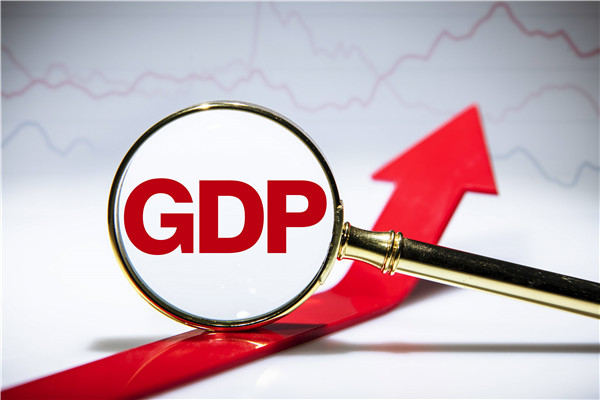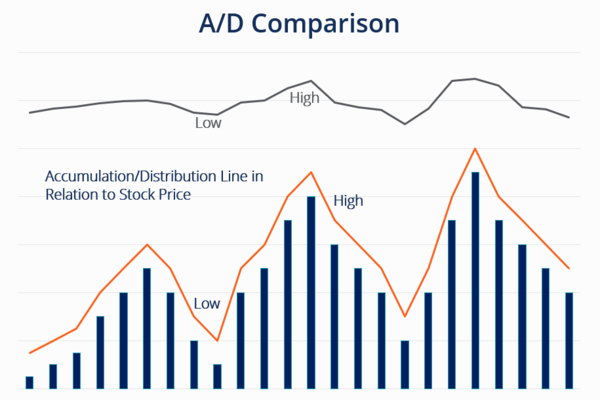What is Gross Domestic Product (GDP)?
Gross Domestic Product refers to the value of all final products and services produced in the economy of a country or region within a certain period of time (a quarter or a year), and is often recognized as the best indicator to measure a country's economic situation. It can not only reflect a country's economic performance, but also its national strength and wealth. Generally speaking, the GDP consists of four different components, including consumption, private investment, government expenditure, and net exports.

Whether a country or region's economy is in a stage of growth or decline can be observed from the changes in this number. Generally speaking, there are no more than two forms of GDP announcement, calculated in terms of total amount and percentage rate. When the growth figure of GDP is positive, it indicates that the region's economy is in a stage of expansion; On the contrary, if it is a negative number, it means that the region's economy has entered a period of recession.
Due to the fact that Gross Domestic Product (GDP) refers to the total amount of goods and services produced within a certain period of time multiplied by the "monetary price" or "market price", it is the nominal GDP. The nominal GDP growth rate is equal to the sum of the actual GDP growth rate and inflation rate. Therefore, even if the total output does not increase and only the price level rises, the nominal gross domestic product will still rise. In the case of price increases, the increase in gross domestic product is only a false impression. However, what has a substantial impact is the actual rate of change in GDP, so when using the GDP indicator, it is necessary to adjust the nominal GDP through the GDP reduction index to accurately reflect the actual changes in output. Therefore, an increase in the GDP contraction index in a quarter is sufficient to indicate the inflation situation in that quarter. If the GDP deflator increases significantly, it will have a negative impact on the economy, and it is also a harbinger of money supply tightening, interest rate rising, and then foreign exchange rate rising.
How to Interpret GDP?
The significant growth of a country's GDP reflects its vigorous economic development, increased national income, and enhanced consumption capacity. In this situation, the central bank of the country may raise interest rates, tighten the money supply, and the country's economic performance and interest rate rise will increase the attractiveness of the country's currency. On the other hand, if a country's GDP shows negative growth, it indicates that the country's economy is in a state of recession and its consumption capacity is reduced. At this point, the central bank of the country may cut interest rates to stimulate economic growth again. The decrease in interest rates coupled with sluggish economic performance will reduce the attractiveness of the country's currency. Therefore, generally speaking, a high economic growth rate will drive up the exchange rate of a country's currency, while a low economic growth rate will cause a decrease in the exchange rate of the country's currency.
For example, from 1995 to 1999, the average annual GDP growth rate of the United States was 4.1%, while among the 11 countries in the eurozone, except for Ireland (9.0%), the GDP growth rates of major countries such as France, Germany, and Italy were only 2.2%, 1.5%, and 1.2%, significantly lower than the level of the United States. This has led to a continuous decline in the exchange rate of the euro against the US dollar since its launch on January 1, 1999, with a depreciation of 30% in less than two years.
However, in reality, the impact of differences in economic growth rates on exchange rate fluctuations is multifaceted:
A high economic growth rate in a country means an increase in income and an increase in domestic demand, which will increase the country's imports and lead to a current account deficit. This will lead to a decline in the domestic currency exchange rate.
If the country's economy is export-oriented and economic growth is aimed at producing more export products, the growth of exports will compensate for the increase in imports and alleviate the pressure of the domestic currency exchange rate decline.
A country's high economic growth rate means that labor productivity increases rapidly, costs decrease, and the competitive position of its products is improved, which is beneficial for increasing exports and suppressing imports. Moreover, a high economic growth rate makes the country's currency highly valued in the financial market, leading to an upward trend in its currency exchange rate.
Can GDP Measure Everything?
GDP is an important indicator for describing changes in the overall level of prices. Although it is important, it does not comprehensively reflect economic development, so we cannot measure everything with GDP. Why can't GDP measure everything? We can start from the following aspects.
1. GDP cannot accurately reflect the growth of wealth
For a country, its economic strength is largely determined by its wealth stock, rather than just the newly added wealth in the current period; The level of living standards of a country's people largely depends on the wealth stock owned by the people of that country, not just the newly added wealth in the current period. If the economy grows, but the quality of growth is not high, it will cause huge loss and waste of wealth, resulting in a decrease in the stock of wealth. When this situation occurs, the wealth stock cannot maintain synchronous growth with the economic growth rate, so GDP cannot accurately reflect the growth of wealth.
2. GDP does not fully reflect the important role of public services in the entire economic development process
In our daily lives, various services provided by government departments, such as administrative services, public safety services, education services, medical and health services, environmental protection services, etc., play a very important role in the entire economic development. However, GDP accounting takes market activities as the main body and market prices as the standard yardstick to measure economic activities, while there is no market price for public services provided by government departments to the public. So, if we measure everything using GDP, it is obviously unscientific to overlook the important role of public services in economic development.
3. GDP cannot reflect the quality difference of economic development
There are significant differences in the quality and brand quantity of products produced by enterprises between different countries, especially between developed and developing countries; There are also significant differences in the level of technology, labor productivity, capital productivity, resources, and output rates possessed by different countries. At the same time, there are significant differences in the intensity of pollution surrounding different countries, and GDP does not reflect the differences between these data.
4. GDP cannot comprehensively reflect social progress
Let's talk about this from the following three aspects.
GDP cannot reflect the employment situation. The GDP indicator mainly reflects the final outcome of production activities, but it does not involve how many people have participated in the creation of such production results, nor does it involve how many people still hope to participate in production activities. Therefore, it cannot reflect the employment situation of a country.
GDP cannot reflect whether people's income distribution is fair and reasonable. Because GDP is only a production indicator, not an indicator of income distribution, it only reflects the results of production activities, and cannot fully reflect the initial distribution of income, let alone the redistribution of income. Therefore, it cannot reflect whether a country's income distribution is fair and reasonable.
GDP cannot reflect the improvement of social welfare. For example, GDP cannot reflect the improvement of social minimum living security, unemployment security, medical security, and housing security.
5. GDP does not reflect non market household chores
In our daily lives, household chores are essential for everyone, and the degree of marketization of household chores varies greatly depending on the economic development of a country. Usually, the degree of marketization of domestic labor in developed countries is relatively high, while the degree of marketization of domestic labor in developing countries is relatively low. We do not care about the degree of marketization of household chores, as these tasks themselves exist. However, GDP only calculates market-oriented household chores, so for countries with weaker economic development, there will inevitably be a significant gap in their GDP compared to developed countries.
6. GDP cannot reflect changes in resources and environment
GDP can reflect the situation of economic development, but in the process of economic development, natural resources are inevitably consumed, which often has some negative impacts on the environment, such as the consumption of land resources, water resources, forest resources, mineral resources, water pollution, air pollution, land pollution, etc. The resource consumption cost and environmental loss cost caused by our economic development process are not reflected in GDP. At the same time, GDP cannot fully reflect the improvement of the natural environment caused by human conscious actions.
Therefore, we cannot measure everything with GDP. In the process of economic development, although GDP plays an important role, it cannot replace everything, and economic development should not only blindly pursue GDP.
【 EBC Platform Risk Reminder and Disclaimer 】: There are risks in the market, and investment needs to be cautious. This article does not constitute investment advice.







